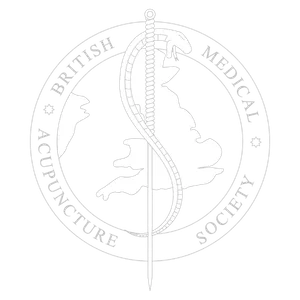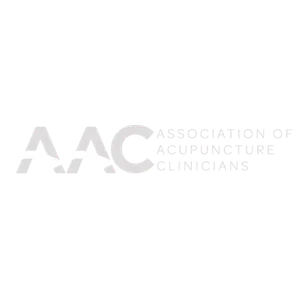UK's Leading Women's Health and Fertility Acupuncture Expert
London Acupuncture Clinic
Irina Szmelskyj, an Award-Winning Acupuncturist, lecturer and author with over 20 years of experience. Easily accessible Central London acupuncture clinic location.
20+
Years of Fertility
Acupuncture
Experience
76%
Ongoing
Pregnancy and Live
Birth Rate*
10+
Years of Teaching
Fertility and IVF
Acupuncture
Scientific Support for Acupuncture
Acupuncture is one of the most researched and highly recommended treatments, used to treat a wide range of conditions. The National Institute for Clinical Excellence (NICE) endorses acupuncture NHS funding for people suffering from musculoskeletal chronic pain, headaches, migraines, and pregnancy nausea.
20,000
Over 20,000 rigorous acupuncture research studies have been published.
3,809
As of September 2022, 3,809 international guidelines recommend acupuncture.
9,340
In these guidelines, acupuncture is recommended 9,340 times (5,572 for pain and 3,768 for non-pain conditions).
Birch, S., 2022. Update on publications by medical expert groups (Clinical Practice Guidelines, Treatment Guidelines) that make recommendations about acupuncture.
About Acupuncture
What is Acupuncture?
Acupuncture is a therapeutic practice where fine needles are inserted into specific points on the body to alleviate various symptoms and enhance overall wellbeing.
Believed to have originated in China around 4000 BC, acupuncture is rooted in Traditional Chinese Medicine, which posits that the therapy regulates the flow of ‘Qi’ (translated as ‘energy’).
In recent years, advancements in scientific research have increasingly explained the mechanisms of acupuncture through the lens of Western medicine.
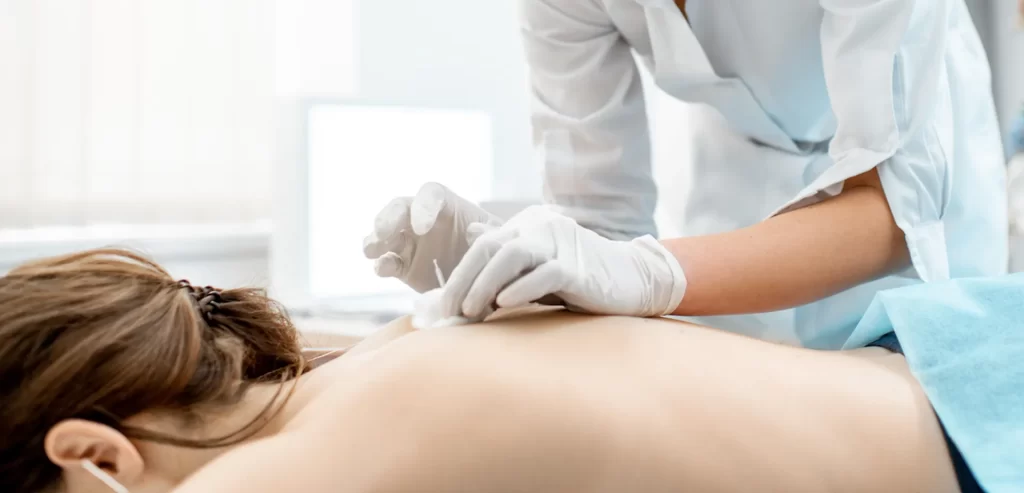
Research Findings
How Does Acupuncture Work?
1
Acupuncture works by stimulating the body’s natural ability to heal by releasing natural pain-relieving and mood-enhancing chemicals like endorphins, serotonin, and dopamine.
2
Acupuncture helps balance the autonomic nervous system, promoting relaxation and reducing stress.
3
Acupuncture improves blood flow, enhancing oxygen and nutrient delivery to tissues.
4
Acupuncture influences the release of hormones in the body, helping to regulate various functions such as fertility, sleep, digestion, and mood.
5
Acupuncture promotes neuroplasticity, which is the brain’s ability to reorganise and form new neural connections, potentially improving cognitive functions and emotional well-being.
Is Acupuncture Safe?
Research on the safety of acupuncture is so conclusive that even critics say it is safe.
Several studies involving over 10.5 million treatments have demonstrated that acupuncture is one of the safest forms of medical treatment. The most common side effects reported include minor bleeding or bruising, tiredness, and temporary aggravation of symptoms. The rate of more serious adverse events is extremely low, at 0.00011%.
In contrast, a recent meta-analysis found that taking non-steroidal anti-inflammatory medications, such as Ibuprofen, even for a short duration, increased the risk of a heart attack.
It is important to note that acupuncture is only safe when administered by a fully qualified acupuncturist. In the UK, anyone can work as an ‘acupuncturist’ without any formal training. Fully qualified acupuncturists typically have degree-level training in acupuncture, completed over three to four years. Some ‘acupuncturists’ may have only completed a short course over a day or two, often using terms such as ‘dry needling’ or ‘medical acupuncture’ to describe their practice.
The World Health Organization (WHO) recognises the importance of safe practice and has established comprehensive guidelines outlining the minimum acupuncture training requirements:
Individuals without prior medical training must complete:
1,168 – 1,968 hours of theoretical training
400 – 500 hours of supervised clinical acupuncture practice
Healthcare professionals seeking to add acupuncture to their practice must complete:
672 – 1,296 hours of theoretical training
400 – 500 hours of supervised clinical acupuncture practice
These rigorous training requirements ensure that practitioners are well-prepared to provide acupuncture safely and effectively.
“I cannot recommend Irina highly enough, particularly to any woman who is trying to conceive, is getting ready for IVF or is pregnant.
Not only did Irina’s acupuncture treatments result in a healthy pregnancy after years of heartache miscarrying many times and then not being able to conceive at all, but she supported me well above and beyond the call of duty during those worrying pregnancy months.
Irina is a skilled and highly experienced acupuncturist, has a real empathy for the people she treats and her integrity and passion shine through in bucket loads.”
H.D.
The Clinic Founder-
Specialist Fertility Acupuncturist and Women's Health Expert
Our principal acupuncturist, Irina Szmelskyj, has a Master of Science (MSc) in Acupuncture with Distinction. She studied acupuncture for four years at the Northern College of Acupuncture in York, and her Master of Science degree was awarded by the University of Wales. Irina is registered with the British Acupuncture Council (BAcC). She has been successfully practising acupuncture for over 20 years and specialises in women’s health, fertility, and IVF.
Irina is passionate about promoting the science of acupuncture and is actively involved in research and teaching. She has been lecturing for over 12 years, presented at national and international conferences, and co-authored a number one best-selling textbook on acupuncture for fertility and IVF.
Irina Szmelskyj DipAc, MSc, MBAcC, MBMAS, MAAC
- Over 20 years of clinical experience
- National Award Winner
- 76% ongoing pregnancy and live birth rate
- Internationally renowned fertility acupuncture lecturer
- Co-author of no.1 textbook on Fertility Acupuncture and IVF
- Ad hoc peer reviewer for The Complementary Therapies in Medicine
Qualifications
- 2003 Diploma in Acupuncture, Northern College of Acupuncture, York, UK
- 2004 Master of Science in Acupuncture (Distinction), University of Wales, UK
- 2004 Certificate in Pre-prepared Chinese Herbal Medicine, York, UK
- 2013 Fertility, gynaecology and early pregnancy ultrasound scanning, The College of Radiographers, Bournemouth University, Bournemouth, UK
Awards
- 2004 Recipient of The National Research Excellent Award, London, UK
- 2018 Nominated for The NCA Acupuncture Hero Award, York, UK
- 2021 Recipient of The Micro Business of the Year Silver Award, Huntingdonshire District Council, UK
Professional Memberships
- Member of The British Acupuncture Council
- Member of The British Medical Acupuncture Society
- Member of The Association of Acupuncture Clinicians
- Member of The European Society of Human Reproduction and Embryology
- Member of the American Society for Reproductive Medicine
- Member of The British Fertility Society
“Excellent is all I can say. I always enjoy seeing Irina and having the acupuncture (well once the needles are in anyway!). Whilst it is hard to know if it is really doing anything, I do feel like this is a contributor for where I am now (happily 12+ weeks pregnant after years of heartache and failures). And I can’t deny the evidence in front of me. I like how knowledgeable and professional she is, and she always goes that extra bit further to make me feel important and deserving of her time. After being initially sceptical on acupuncture, I am definitely now in a position to say that I would recommend it.”
A.D.
Our Women's Health Acupuncture Services
Acupuncture for Pregnancy and Labour
- Morning sickness
- Back pain
- Pelvic pain
- Headaches and migraines
- Sleeping problems
- Mental health in pregnancy
- Labour preparation
- Labour induction
- Labour pain relief
- Postnatal recovery
Acupuncture for Menstrual Health Issues
- Period pain management
- PMDD, PMS and mood changes
- Irregular cycles
- Menstrual headaches and migraines
- Menstrual fatigue
- Ovulation pain
Acupuncture for Menopausal Symptoms
- Hot flushes and nightsweats
- Menopausal insomnia
- Menopause "brain fog"
- Menopausal mood changes
- Menopausal fatigue
- Menopausal hormonal imbalance
Our Fertility and Reproductive Health Acupuncture Services
Acupuncture for Natural Conception
- Menstrual cycles regulation
- Hormonal imbalances
- Uterine environment
- Stress relief
- Egg quality
- Low ovarian reserve
- Sexual function
Acupuncture for IVF Treatment
- Acupuncture for In Vitro Fertilization (IVF)
- Frozen Embryo Transfer (FET)
- IUI and Ovulation Induction
- Poor response to stimulation
- Repeated implantation failure
- LGBTQ+ family planning
Acupuncture Male Fertility Support
- Sperm quality and quantity
- Hormone balance
- Stress relief and emotional balance
- Male ageing and fertility
- Acupuncture IVF support
- Sperm donor support
“Irina has successfully prepared my body for two IVF babies, pregnancy and birth. She has an amazing knowledge and understanding of women’s health, expertise in acupuncture and such a high level of care. I continue to come for treatment for general well-being and migraines and have recommended Irina to many friends over the years.”
S.V.
Does Acupuncture Treatment Hurt?
Acupuncture needles are very thin, only slightly thicker than human hair, so most patients find the experience quite comfortable.
When the needles are inserted, we may adjust them until you feel a slight ache or tingling. This sensation indicates that the acupuncture point has been activated and should settle within a few seconds. Research shows that this sensation triggers beneficial physiological changes in the body, such as the release of endorphins and improved blood flow.
If you experience any discomfort during your acupuncture treatment, please inform us immediately. We will adjust the needle to ensure your comfort. Our goal is to make your acupuncture session as pleasant and effective as possible.
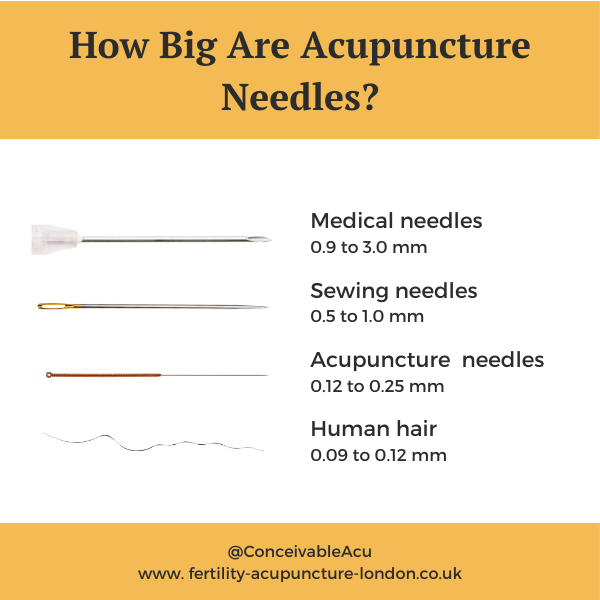
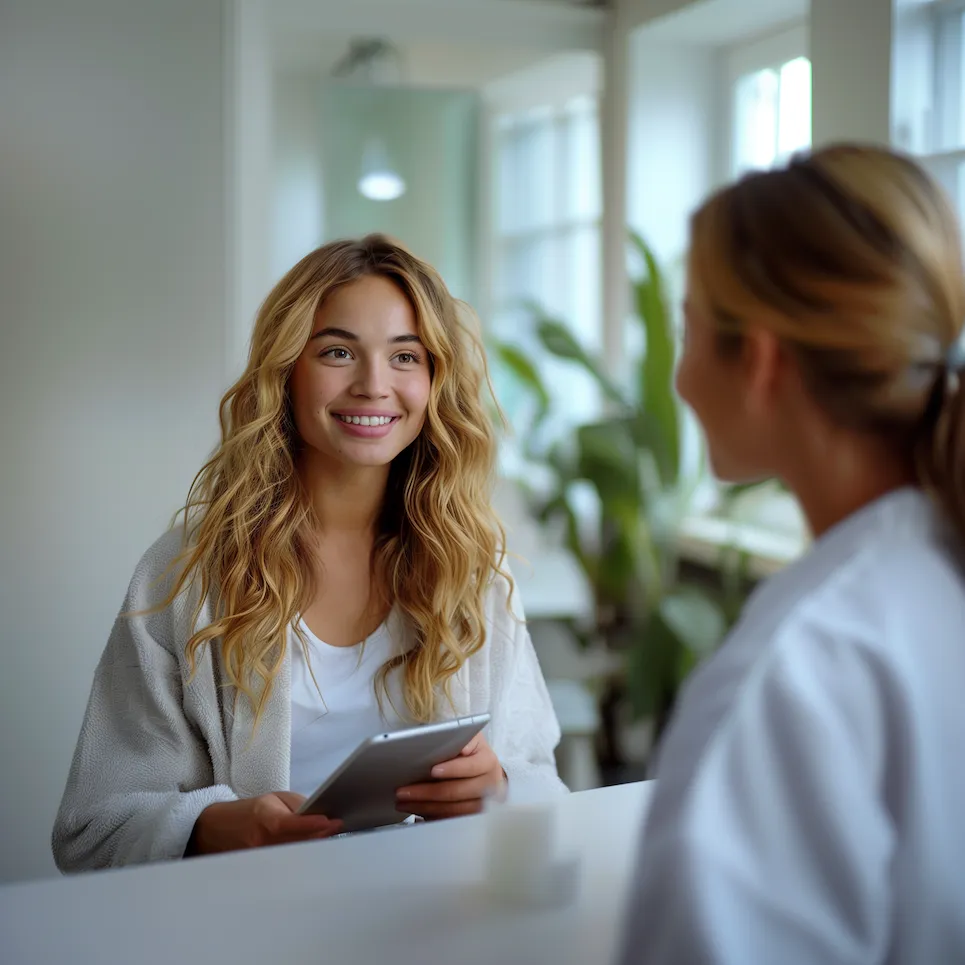
Initial Acupuncture Consultation and Treatment Process
Prior to the Initial Consultation
Before your acupuncture consultation, you will be asked to fill out our detailed medical questionnaires. You will be asked about:
The main reason for seeking acupuncture treatment
How your condition may have started
Factors that may be preventing improvement
What aggravates and relieves your symptoms
The impact on your daily activities
Medical tests and investigations
History of similar problems
Past injuries and illnesses
Hospitalisations or operations
History of relevant health conditions in your blood relatives
The effects of your lifestyle on your health, including diet and exercise
The Initial Consultation
During your initial acupuncture consultation, we will ask you more detailed questions about any aspects of your medical history that require further clarification.
The acupuncture examination will depend on your presenting condition. For example, we may assess your posture, muscles, or joints or feel your abdomen. The acupuncturist may also check your pulse and examine your tongue, which are valuable techniques used to confirm a diagnosis.
Once all the relevant information has been obtained, your acupuncturist will formulate a diagnosis and determine the most appropriate treatment. We will discuss the proposed treatment plan with you, explain possible side effects, and ask for your consent.
Acupuncture Treatment
If your consultation appointment allows time for the initial treatment, you may be asked to prepare by removing some of your outer clothing. Only the areas of the body being treated will be exposed, and a sheet or paper may be provided for your comfort if needed.
You will then be asked to lie down on a treatment couch, but acupuncture can also be administered with you sitting up if required.
Sterile acupuncture needles will be inserted into specific acupuncture points based on your diagnosis, which may be away from the site of the problem. The needles will typically be left in place for around 15 to 20 minutes, although this may vary depending on the condition being treated. During this time, most patients prefer to relax; some even fall asleep. At the end of the acupuncture treatment, the needles will be painlessly removed and disposed of.
Lifestyle Advice
As part of a holistic approach, we may provide lifestyle advice, including dietary advice, recommendations about rest and relaxation, supplements and exercise. This lifestyle counselling will help you recover faster, prevent future health problems, and achieve optimal health.
Follow-up Acupuncture Treatment Sessions
After your initial consultation, follow-up sessions will be scheduled to continue your planned treatment. Each session will start with a brief update on your condition, followed by an acupuncture treatment. Ongoing care may include additional lifestyle advice, referrals to other specialists, or recommendations for further tests.
FAQs
How many acupuncture sessions will I need?
The number of sessions required varies depending on the individual and the condition being treated. Typically, a series of treatments over several weeks is recommended for the best results.
Can acupuncture be combined with other medical treatments?
Yes, acupuncture therapy can be safely combined with other medical treatments. Always inform your acupuncturist and healthcare provider about any other treatments or medications you are undergoing.
Does insurance cover acupuncture?
Some insurance plans may cover acupuncture treatments. It is best to check with your insurance provider for details on coverage and reimbursement.
Do you prescribe Chinese herbal medicine?
We do not prescribe Chinese herbs. If we think your health condition would benefit from Chinese herbs, we will refer you to a suitable Chinese herbal clinic.
Do you use sterile single-use acupuncture needles?
Absolutely. The safety and well-being of our clients are our top priorities. We use single-use, sterile, disposable needles for every acupuncture session. These needles are manufactured, packaged, and sealed under strict health and safety standards. Each needle is opened from its sterile packaging in front of the patient at the beginning of a session and is immediately disposed of in a medical-grade sharps container after a single use. This process ensures complete sterility and allows patients to see both the opening and disposal of needles, ensuring peace of mind regarding their safety.
Do you provide five element acupuncture?
Yes, our practitioners are trained in several styles of acupuncture, including five elements acupuncture. We carefully assess each patient’s unique needs and health conditions to determine the most suitable approach, ensuring personalised and effective treatment.
What are the differences between Traditional Chinese Medicine (TCM) Acupuncture and Medical Acupuncture?
Traditional Chinese Medicine (TCM) acupuncture and medical acupuncture both use thin needles to promote healing, but they differ significantly. TCM acupuncture is based on ancient Chinese medicine, focusing on energy flows (Qi) and holistic health. In contrast, medical acupuncture integrates modern medical knowledge, emphasising neuroanatomy, and is often used by healthcare professionals as an adjunct to other treatments.
Degree-qualified acupuncturists are trained in both TCM and medical acupuncture, allowing them to use a broad range of traditional acupuncture techniques. However, not all medical acupuncturists are fully trained; some attend short courses that provide only a basic understanding of traditional acupuncture to complement their primary medical practice.
Have Another Question?
Send us a message (non urgent queries only, please)
London Acupuncture Clinic
Our London acupuncture clinic is centrally located, just a 2-minute walk from NCP London Bloomsbury Square parking and within a short walk of Holborn, Tottenham Court Road, and Russell Square London underground stations.
The clinic is also easily accessible for IVF patients from the Marylebone district and Harley Street, where many London IVF and fertility clinics are located.

